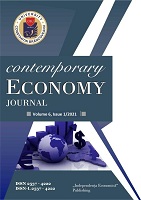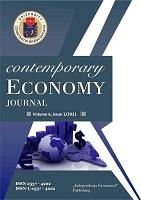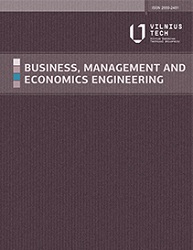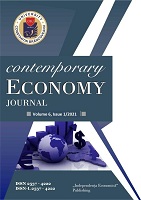Author(s): Muhammad Saqib Bashir Butt,Hasniza Mohd. Taib / Language(s): English
Issue: 2/2021
Purpose -This paper investigates whether the macroeconomic factors affect the firm stock returns volatility differently depending on their location in different sectors. For this purpose, daily financial time-series data for 683 firms located in nine US sectors for the period of 2000 to 2017 are employed. Research methodology -The GARCH (1,1) model was applied to each firm located in nine US sectors. The four macroeconomic factors, namely, exchange rate, treasury yield spread, oil prices, and market return, are included in both mean and variance equations of GARCH (1,1) model to estimate the effect. Research limitations – This research study is limited to the New York Stock Exchange; therefore, it can be extended to the other economies as well. Further, this study uses one firm feature that is the sectoral location of the firm; it is recommended that some other firm features should be studied to explore the volatility behaviour of firms. In the methodological part, this study does not include the lag effect, since it is recognised in the literature that the investors underreact to public information, so future research can be extended to test the underreaction hypothesis. Practical implications – This study has implications for the investors and policymakers. Since it has emerged from the findings that some sectors are more sensitive than others to macroeconomic changes, so this knowledge will help the investors to diversify their portfolio and policymakers to maintain macroeconomic discipline. Originality/Value -The main contribution of this study is that it undertakes the assumption of heterogeneous nature of firms and conducts a detailed firm level analysis by sector covering a more extended period of time to investigate the impact of four macroeconomic factors, namely, exchange rate, treasury yield spread, oil prices, and market return on firm stock returns, volatility using daily data. Further, this study contributes by including all the macroeconomic factors together as an exogenous variable in mean and conditional variance equations of the GARCH (1,1) model to investigate the effect simultaneously.
More...




